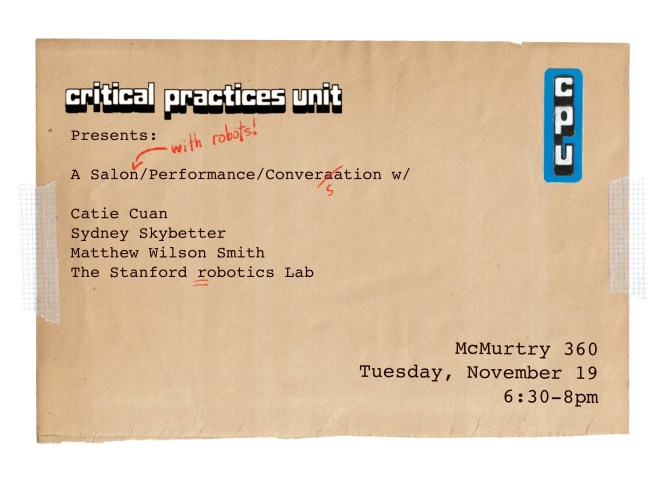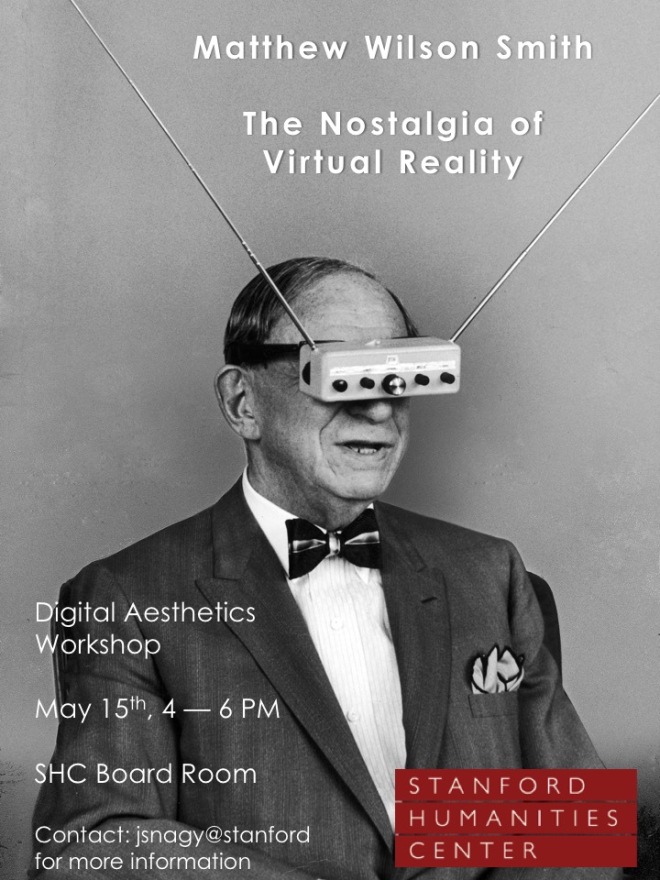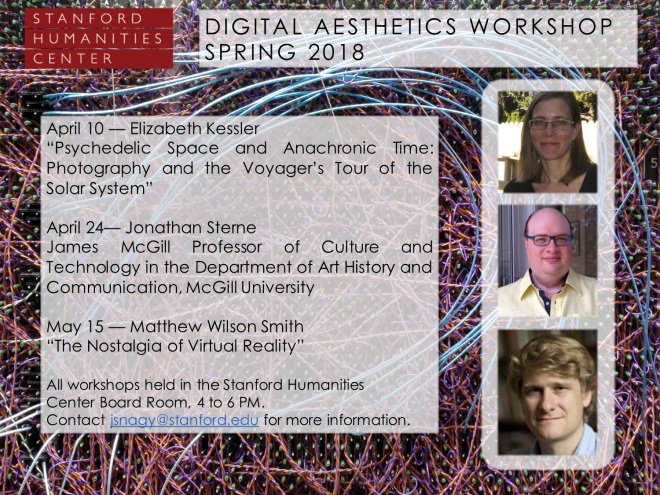
I am happy to announce this year’s first two events of the Critical Making Collaborative at Stanford. Both events focus on critical and self-reflexive uses of AI at the intersection of theory and practice.
The first event, on Friday, October 13 (12-2pm in the McMurtry Building, room 360), includes a screening of Carlo Nasisse’s short film “Uncanny Earth.” In this film — which is equally about technology, ecology, human and nonhuman agency — an AI attempts to tell a story about the earth and its inhabitants. Following the screening, we will discuss the film and the many issues it raises for working and thinking critically with AI with the filmmaker.
Carlo Nasisse is a director and cinematographer. His work has been featured in the New Yorker, PBS, SXSW, Slamdance, and the New Orleans Film Festival. His most recent short film, “Direcciones”, won the Golden Gate Award for Best Documentary Short at the San Francisco Film Festival. He is currently completing his MFA at Stanford University.
RSVPs to shane.denson@stanford.edu are appreciated, though not required, so I have a rough headcount for refreshments.

The second event, on Friday, November 3 (4:30pm, location TBA), will feature Prof. Matt Smith and his wonderfully weird graphic novel remix of Nietzsche’s “On Truth and Lies in an Nonmoral Sense” composed in awkward and agonistic collaboration with the AI graphics engine Midjourney — it may be humanity’s last artwork!
Matthew Wilson Smith is Professor of German Studies and of Theater and Performance Studies at Stanford. His interests include modern theatre and relations between science, technology, and the arts. His book The Nervous Stage: 19th-century Neuroscience and the Birth of Modern Theatre (Oxford, 2017) explores historical intersections between theatre and neurology and traces the construction of a “neural subject” over the course of the nineteenth century. It was a finalist for the George Freedley Memorial Award of the Theater Library Association. His previous book, The Total Work of Art: From Bayreuth to Cyberspace (Routledge, 2007), presents a history and theory of attempts to unify the arts; the book places such diverse figures as Wagner, Moholy-Nagy, Brecht, Riefenstahl, Disney, Warhol, and contemporary cyber-artists within a coherent genealogy of multimedia performance. He is the editor of Georg Büchner: The Major Works, which appeared as a Norton Critical Edition in 2011, and the co-editor of Modernism and Opera (Johns Hopkins, 2016), which was shortlisted for an MSA Book Prize. His essays on theater, opera, film, and virtual reality have appeared widely, and his work as a playwright has appeared at the Eugene O’Neill Musical Theater Conference, Richard Foreman’s Ontological-Hysteric Theater, and other stages. He previously held professorships at Cornell University and Boston University as well as visiting positions at Columbia University and Johannes Gutenberg-Universität (Mainz).


